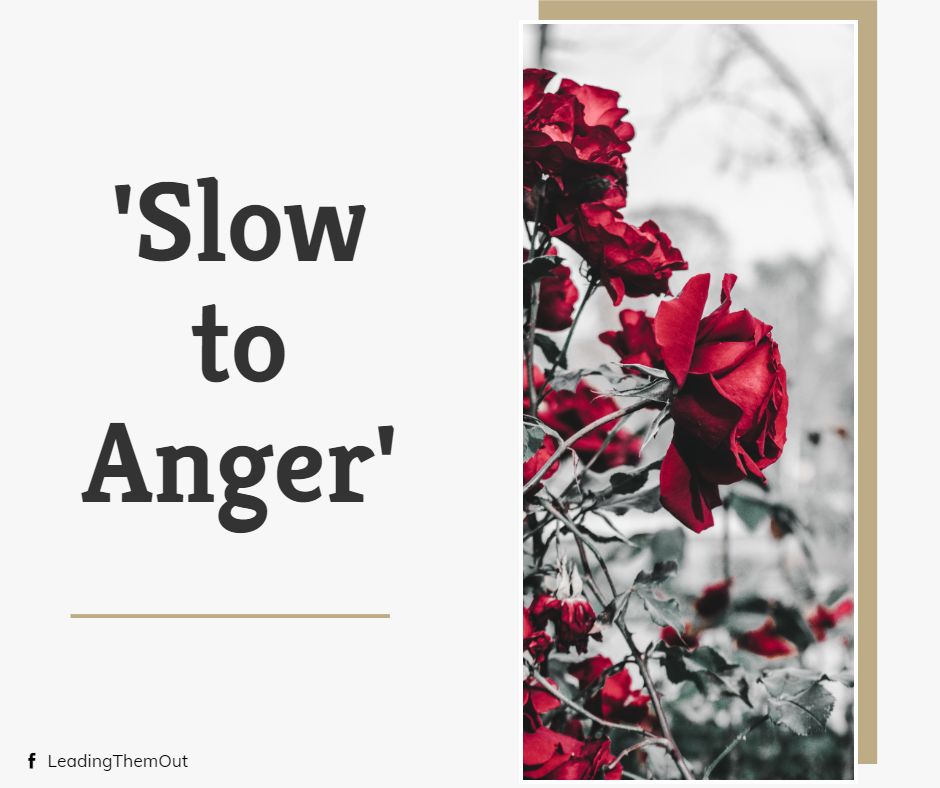There is a charming note of honesty amongst parents. Pretty much everybody admits to responding to their children in anger from time to time. Children lack the decorum of adults. Adults generally gauge the appropriateness of a situation before raising a touchy subject. Children, on the other hand, are blissfully unaware of the fact that we have already resolved 45 disputes today (and counting) when they provoke a sibling to squeal.
There is a danger that as parents we can become flippant about reacting badly towards our children and so hardened to our own sinful responses that we forget the seriousness of anger and even begin to believe it is justified. Jesus says that ‘everyone who is angry with his brother will be liable to judgement’ (Matthew 5:22) and ‘brother’ can certainly include our little ones. Anger can result in thoughtless and hurtful words spilling out of our mouths, unkind and uncaring behaviour, and worse still, can have the effect of begetting more sin in our children. Richard Baxter writes that ‘once you have provoked others to anger, you do not know the extent of the sin it may lead them to’. If our child were in a government school, we would be upset if we knew their class teacher made a habit of managing the class by anger. So, if we expect other adults to treat our children with gentleness, why do we think our own anger-filled responses are acceptable?
The book of Proverbs offers much wisdom on the subject:
1. ‘Whoever is slow to anger is better than the mighty, and he who rules his spirit than he who takes a city.’ (Proverbs 16:32)
The antidote to the sin of anger is self-control and the implication of the verse is that it is easier to take a city than it is to rule one’s spirit. Since true self-control is a fruit of the Spirit, the only way of putting anger to death is to spend time using the means of grace: reading our Bibles, praying and confessing sin to one another. Baxter writes, ‘we must live under the authority of God, with a sense of obedience to him directing our hearts.’ If we do not live under God’s authority and are not allowing the light of his word to shine on our actions, then we will never begin to grasp the true horror of anger and its consequences on those around us. Furthermore, we will never begin to see the fruit of self-control in our lives.
2. ‘The vexation of a fool is known at once, but the prudent ignores an insult.’ (Proverbs 12:16)
The most effective way of managing a situation when angry words threaten to spill out of our lips, is to take a breath and pause. We must allow reason to make itself known. Proverbs has strong words for ‘the fool’ and a sure means of identifying him is that his anger is apparent with immediate effect. It is tempting to read Proverbs smugly, believing that ‘the fool’ is somebody other than ourselves. However, if we are known for responding in hasty anger, then we are certainly in danger of embodying the fool’s characteristics.
3. ‘A soft answer turns away wrath, but a harsh word stirs up anger.’ (Proverbs 15:1)
After the pause, we have a choice: to respond softly or harshly. Since ‘the law of the Lord is perfect’ (Psalm 19:7), it should come as no surprise to us that a soft answer will generally defuse a situation whereas a harsh word will escalate it. When our children come to us bickering and arguing, or when they make demands at awkward times, we must seek to train ourselves to respond in a soft and lowered voice, rather than a raised and harsh voice.
Finally,
I am not writing from the end of the race. It quickly became apparent to me at the outset of my home educating career that if life were to run fairly smoothly, I would need to seek the Lord on responding rightly to my children. It is tempting to look ahead and bemoan the distance I have yet to travel, but every now and then I look back and reflect that by God’s grace, I have become a little slower to anger….

